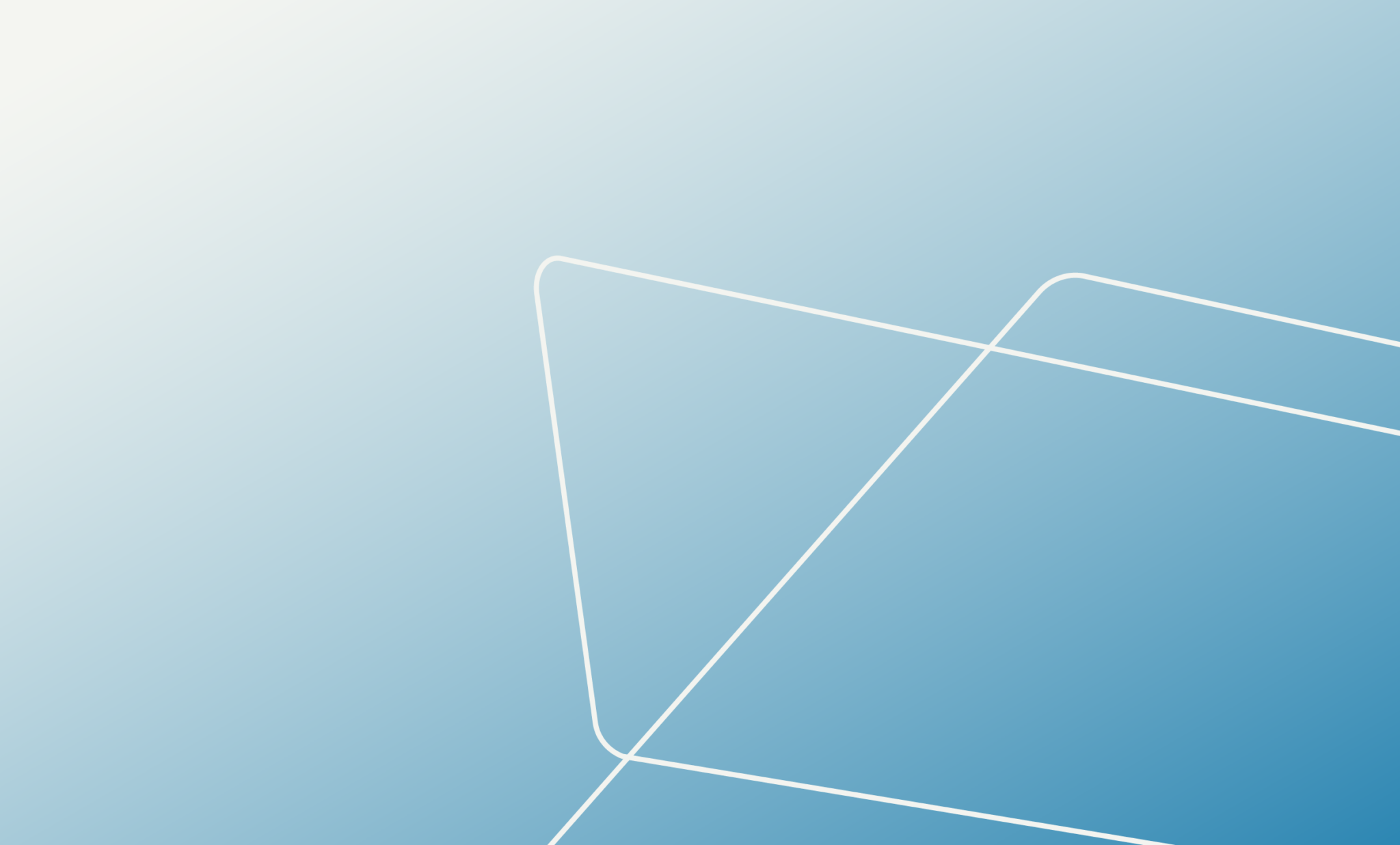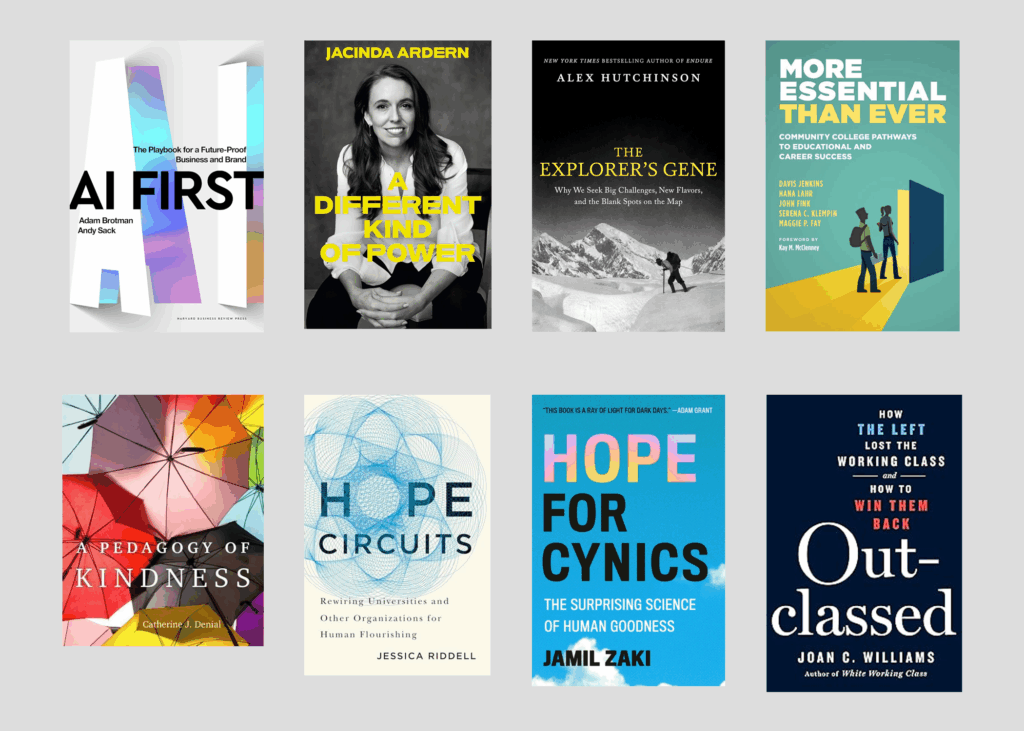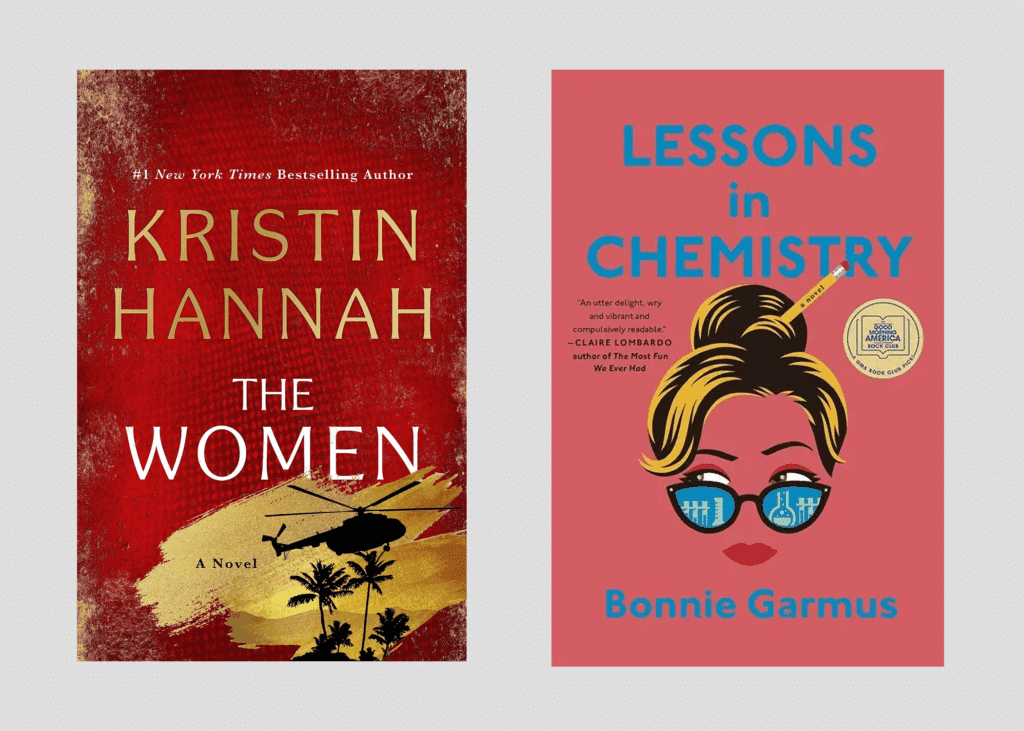Like many of you, I read avidly for professional learning, personal growth, and the simple pleasure of being transported to other times and places. And as I do every fall, I have compiled highlights from my readings over the last year, including books on leadership and education, novels, and a few alternative information channels.
On Leadership and Education
AI First: The Playbook for a Future-Proof Business and Brand
Adam Brotman and Andy Sack
I picked up this book right after the release of ATD’s AI for All Taskforce report, hungry for more insight into building ATD’s AI adoption capabilities and our AI proficiency. This quote captures just one piece of the book’s terrific advice regarding what it will mean for organizations to operate in an “AI first world.”
“Get yourself and your company AI educated and proficient. Understand what’s happening in the space and have a point of view about your need to embrace it. Assemble an AI council and/or designate an AI leader in your organization. Get an AI use policy in place. Start preparing and launching AI pilots with clear goals and assessment. Start your AGI horizon planning.”
A Different Kind of Power
Jacinda Ardern
After a 2023 trip to work with New Zealand universities curious about ATD, I downloaded this memoir as soon as it became available to learn more about the former prime minister. Ardern speaks to various facets of leadership that should resonate with college leaders, including leading with empathy, avoiding burnout, centering the advancement of priorities even while leading through seemingly daily crises, and balancing leadership with being a parent.
The Explorer’s Gene: Why We Seek Big Challenges, New Flavors, and the Blank Spots on the Map
Alex Hutchinson
The itch to discover new things persists in all of us, Hutchinson writes in this book, which is a combination of research and storytelling. I love his examination of the “explore versus exploit” dilemma we face as we take on new adventures. Exploration asks us to seek new information and knowledge while utilizing known resources and optimizing existing skills or knowledge. Exploitation requires us to refine our skills and knowledge. Successful decision-making requires balancing the two. I see this in our transformation work as colleges struggle between these two dimensions as they take on new challenges.
More Essential Than Ever
Davis Jenkins, Hana Lahr, John Fink, Serena C. Klempin, Maggie P. Fay
This is a “must read” for every community college advocate or practitioner. Produced 11 years after CCRC’s book Redesigning America’s Community Colleges, this book takes a deep look at the significant reforms of the past decade and offers five suggestions for what I call “the redesign of the redesign.”
A Pedagogy of Kindness
Catherine J. Denial
A dean at one of our ATD colleges handed me this book on a site visit to the college’s new teaching and learning center. The book was a common read for faculty. I loved it!
Kindness is defined as attending to justice, believing people, and believing in people. It’s a discipline, according to Denial, a professor of American history at Knox College in Illinois, who methodically explores kindness in relation to self, the syllabus, assessment, and the classroom.
Hope Circuits: Rewiring Universities and Other Organizations for Human Flourishing
Jessica Riddell
How do we lead with a hope-based mindset and model abundance and generosity in times that demand new mindsets, perspectives, and behaviors to best serve our students? Riddell offers “hope circuits,” a concept from the neurosciences that suggests there is a psychological mechanism that draws on resilience and optimism, as a framework for change to navigate and redesign complex systems.
Hope for Cynics: The Surprising Science of Human Goodness
Jamil Zaki
A perfect read for this moment, Zaki makes a case for leaders to beat back cynicism by embracing hopeful skepticism to help us rebalance our view of human nature.
Outclassed: How the Left Lost the Working Class and How to Win Them Back
Joan C. Williams
I picked this up in June during a stroll through Kramers, my favorite D.C. bookstore. Williams immerses you in the intricacies of polling data, examining the divisiveness roiling America. It is filled with highlights and marginalia. If you are a “data devotee,” this book will resonate with you.
Novels Worth a Read
The Women
Kristin Hannah
A gift from a colleague that I deeply admire, I could not put this novel down. The image and life arc of Frankie McGrath — who serves in the Army Nurse Corps during the Vietnam War and navigates a changed country upon her return to the U.S. — will never leave me.
Lessons in Chemistry
Bonnie Garmus
Like the tale of Frankie McGrath, Elizabeth Zott’s story — also set in the 1960s — is powerful. It is a story to which many baby boomer women can relate. Garmus’ use of humor makes it easier to move through some of the challenging barriers Zott faces and navigates.
Podcasts, Substacks and Beyond
And finally, in keeping with trends of taking in information from multiple channels and in multiple formats, I have some favorite podcasts, Substacks, and articles in this year’s “reading” list.
The Midlife Chrysalis
Chip Conley
Chip Conley is the founder of the Modern Elder Academy, and his book Wisdom at Work: The Making of a Modern Elder was on a previous summer reading list. I recently discovered his new podcast, The Midlife Chrysalis, and I have adopted a new habit of Friday walks to tune in.
Communication Matters
J.D. Schramm
I have had the honor of co-presenting with J.D. in some of the Aspen College Excellence program leadership work. He wrote the book Communicate with Mastery, and his newsletter on Substack, Communication Matters, is always filled with leadership and communications advice.
Range Widely
David Epstein
I highly recommend David’s Substack newsletter Range Widely, especially if you are a fan of his book Range, another of my reading list picks from several years ago.
The Power of Being an Amateur
Michelle Taite
I have been an avid reader of the Harvard Business Review since the mid-1980s, when I started my MBA program. I still find most of HBR’s articles highly relevant on matters of culture and leadership. The article “The Power of Being an Amateur” (September 2025) by Michelle Taite is a powerful read for leaders who are feeling “cognitive entrenchment” — a state where one is so enmeshed in established knowledge and routines that they resist or overlook information that is crucial to successfully adapting to change and solving problems.


